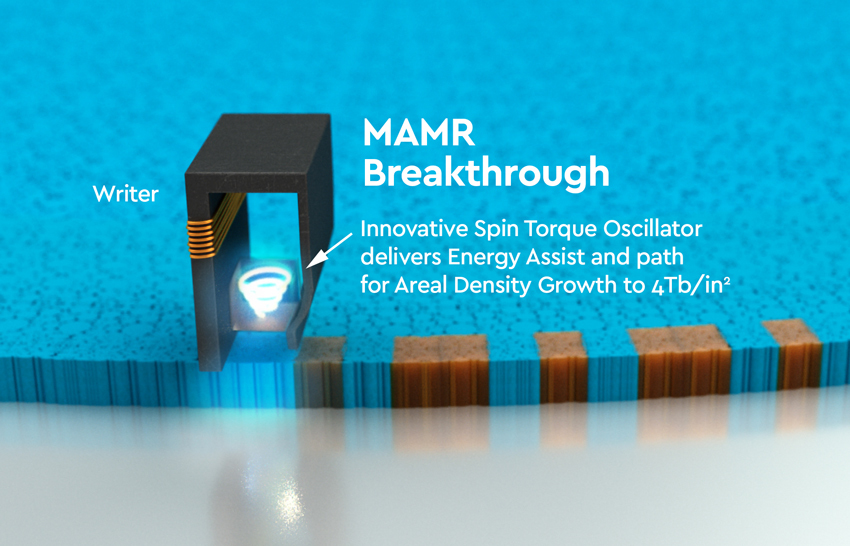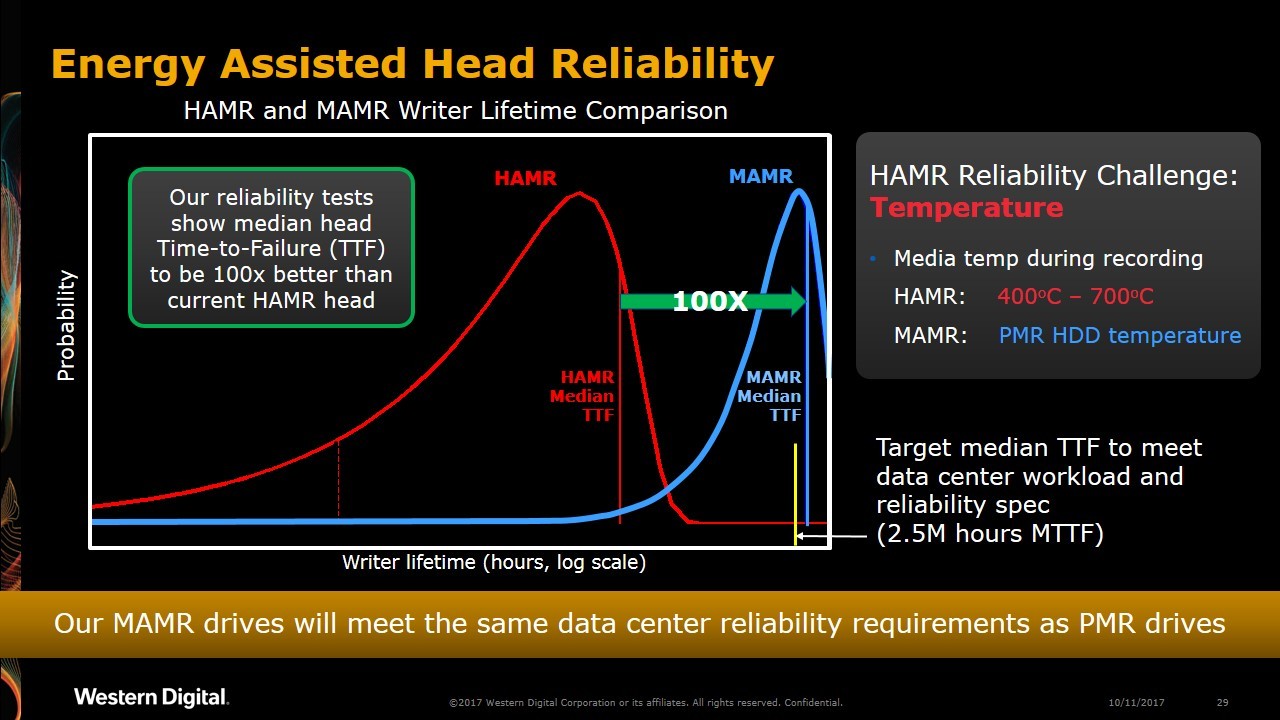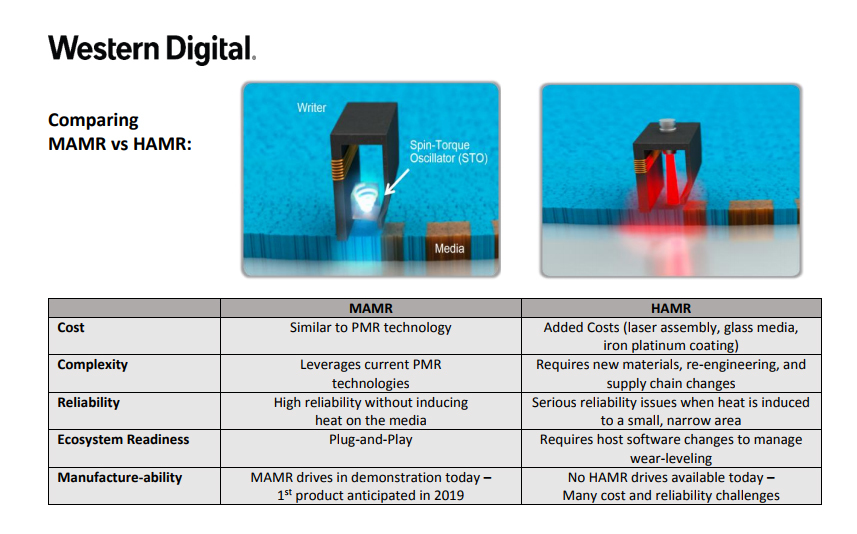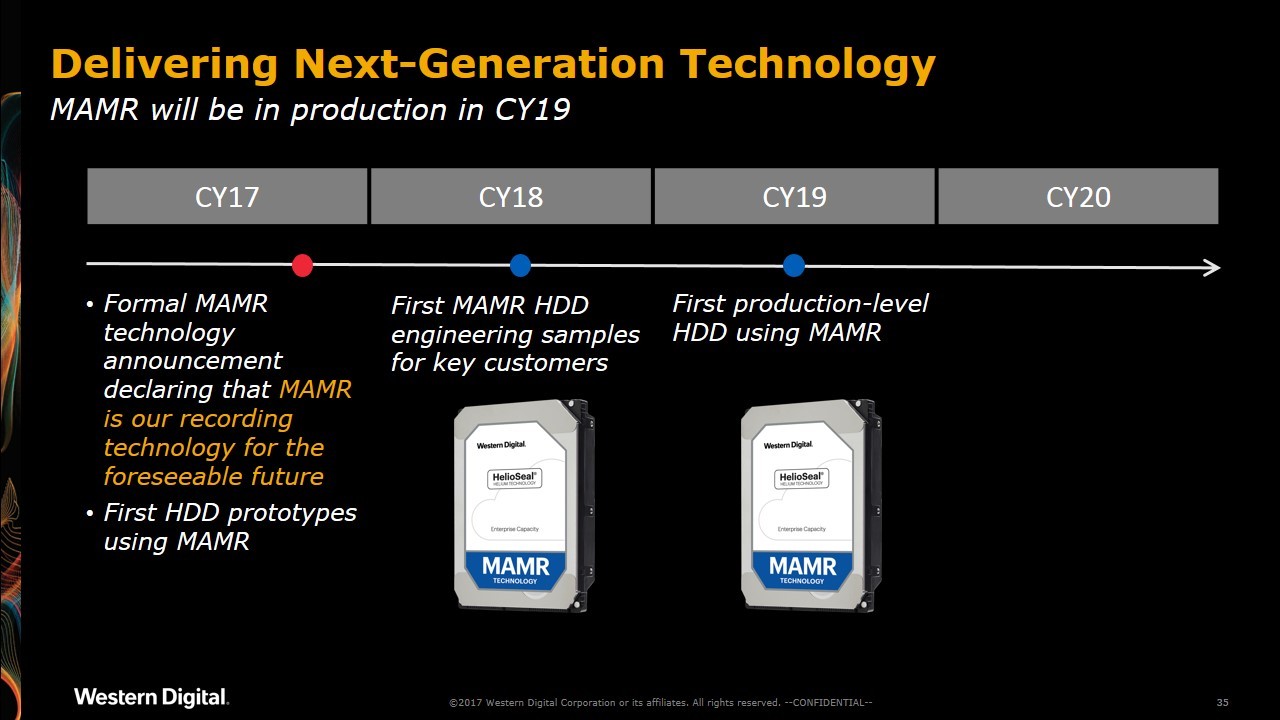[PConline News] Western Digital has solidified its position as the third-largest NAND flash memory supplier globally after acquiring SanDisk. However, the company hasn't abandoned its lucrative HDD business. In fact, Western Digital is still pushing forward with the development of next-generation hard disk drives. Today’s HDDs already exceed 10TB, 12TB, and even 14TB in capacity, and in the next two years, 16TB and 18TB models are expected to hit the market. Despite facing technical limitations, Western Digital has announced a major breakthrough: using MAMR (Microwave-Assisted Magnetic Recording) technology, it will increase HDD storage density to 4 Tb per square inch—four times the current level. This could lead to 40TB HDDs by 2025.

Current HDDs use PMR (Perpendicular Magnetic Recording), which has reached a density of 1 Tb per square inch, making further improvements difficult. As a result, recent HDDs have relied on SMR (Shingled Magnetic Recording) to reach 12TB or 14TB. Previously, 16TB and beyond were expected to use HAMR (Heat-Assisted Magnetic Recording), but this technology has faced delays due to the need for new materials like iron and platinum, along with integrated laser components that heat the media to high temperatures—up to 400-700°C. While HAMR can boost density to 5 Tb per square inch, it requires significant changes in design, increasing costs and complexity.

Western Digital's alternative is MAMR, a microwave-assisted magnetic recording technology that offers better cost and reliability compared to HAMR. Developed by Jimmy Zhu, a vice president at Western Digital and a researcher from Carnegie Mellon University, MAMR uses spin-torque oscillators (STO) to generate microwave fields instead of lasers. This approach simplifies the design, reduces costs, and improves reliability. According to Western Digital, MAMR is nearly as cost-effective as traditional PMR, while offering 100 times the reliability of HAMR drives.

For everyday users, the impact might not be immediately noticeable, but the long-term implications are clear: MAMR will drive the next generation of HDDs, enabling storage densities up to 4 Tb per square inch. This means HDDs could reach capacities of 40TB by 2025, offering more space without sacrificing performance or reliability.

Western Digital plans to release MAMR HDD prototypes in 2017, begin testing with select customers in 2018, and launch commercial versions in 2019. This marks a key step in the evolution of data storage, ensuring that HDDs remain competitive in an era dominated by SSDs.
FTTA IP68 Hardened Connections
Ftta Ip68 Hardened Connections,Ftta Ip68 Hardened Connections Adapter,Ftta Ip68 Hardened Connections Box,Ftta Ip68 Hardened Connections Cable
Huizhou Fibercan Industrial Co.Ltd , https://www.fibercan-network.com